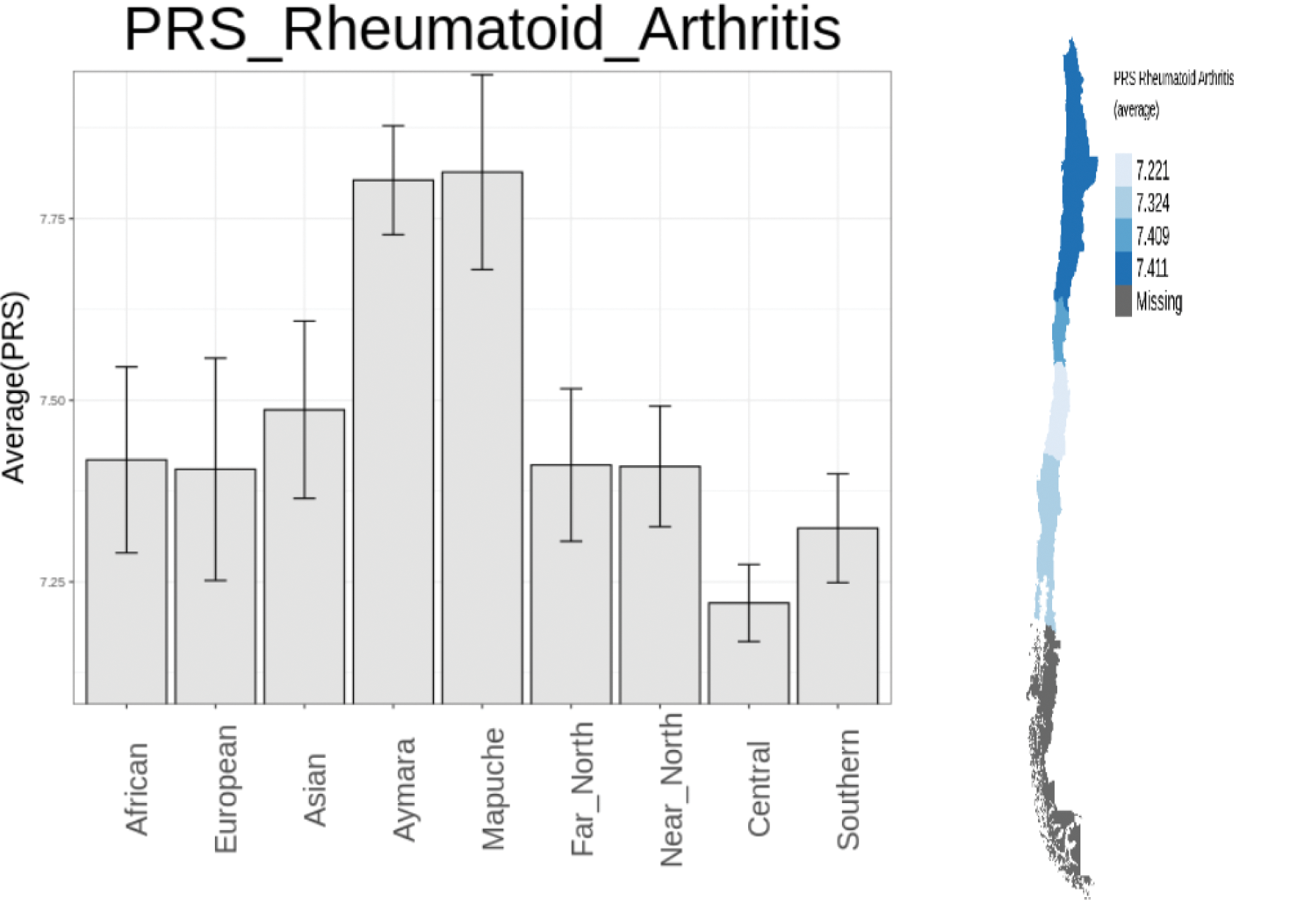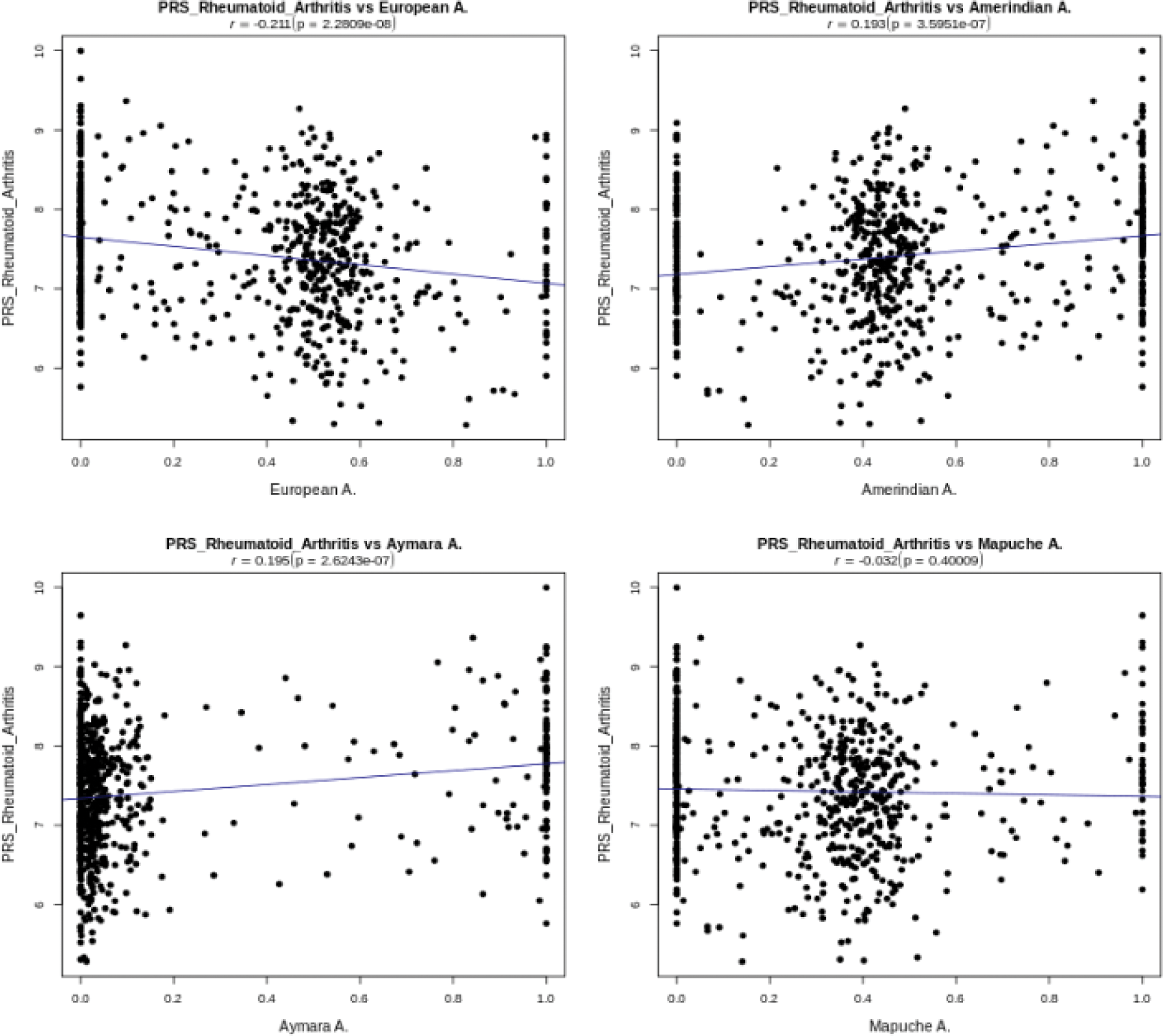

Background: Rheumatoid arthritis (RA) is a complex autoimmune disease influenced by genetic and environmental factors. While polygenic risk scores (PRS) have shown promise in stratifying arthritis RA risk in European and Asian populations, limited data exist for admixed populations in Latin America.
Objectives: The main objective of this work is to explore the existing relationship between genetic ancestry and the risk of suffer from rheumatoid arthritis in a cohort of admixed Chileans individuals.
Methods: We analyzed genetic data from 450 individuals from the ChileGenómico project, genotyped using the Affymetrix Axiom LAT-1 array. Ancestry proportions were estimated using ADMIXTURE software, and RA PRS were calculated using risk alleles and odds ratios from established genome-wide association studies. RA PRS were stratified by geographic macrozones and ethnicity to evaluate their association with ancestry.
Results: Results indicate significant differences in mean PRS across ethnic groups and macrozones (Figure 1), suggesting variability in RA risk due to ancestral allele frequencies. Individuals with higher Amerindian ancestry demonstrated elevated PRS (Figure 2), indicating potential ancestral genetic contributions to RA susceptibility. Furthermore, these findings highlight the possibility of finding undiscovered loci associated with Amerindian ancestry that may contribute to RA risk in admixed populations.
Conclusion: This study underscores the importance of incorporating diverse genetic backgrounds in RA research and suggests that admixture mapping could identify novel risk loci relevant in Latin American populations. Our findings contribute to understanding RA genetics in an underrepresented population, emphasizing the need for inclusive research to reduce health disparities.
REFERENCES: NIL.
Polygenic risk for Rheumatoid Arthritis score by dataset. Left: Average PRS is shown for samples used as ancestry references (African, European, Asian, Aymara, and Mapuche) and in Chilean samples divided by geographic region (Far North, Near North, Central and Southern). Right: Average PRS by geographic region of Chile. The Austral region is grey because it was not tested.

Polygenic risk for Rheumatoid arthritis score by ancestry. Individual PRS scores are plotted by ancestry components in references individuals and Chileans.

Acknowledgements: The authors would like to acknowledge to every participant in the development of this study, including all financial supporters, technicians and patients.
Disclosure of Interests: None declared.
© The Authors 2025. This abstract is an open access article published in Annals of Rheumatic Diseases under the CC BY-NC-ND license (